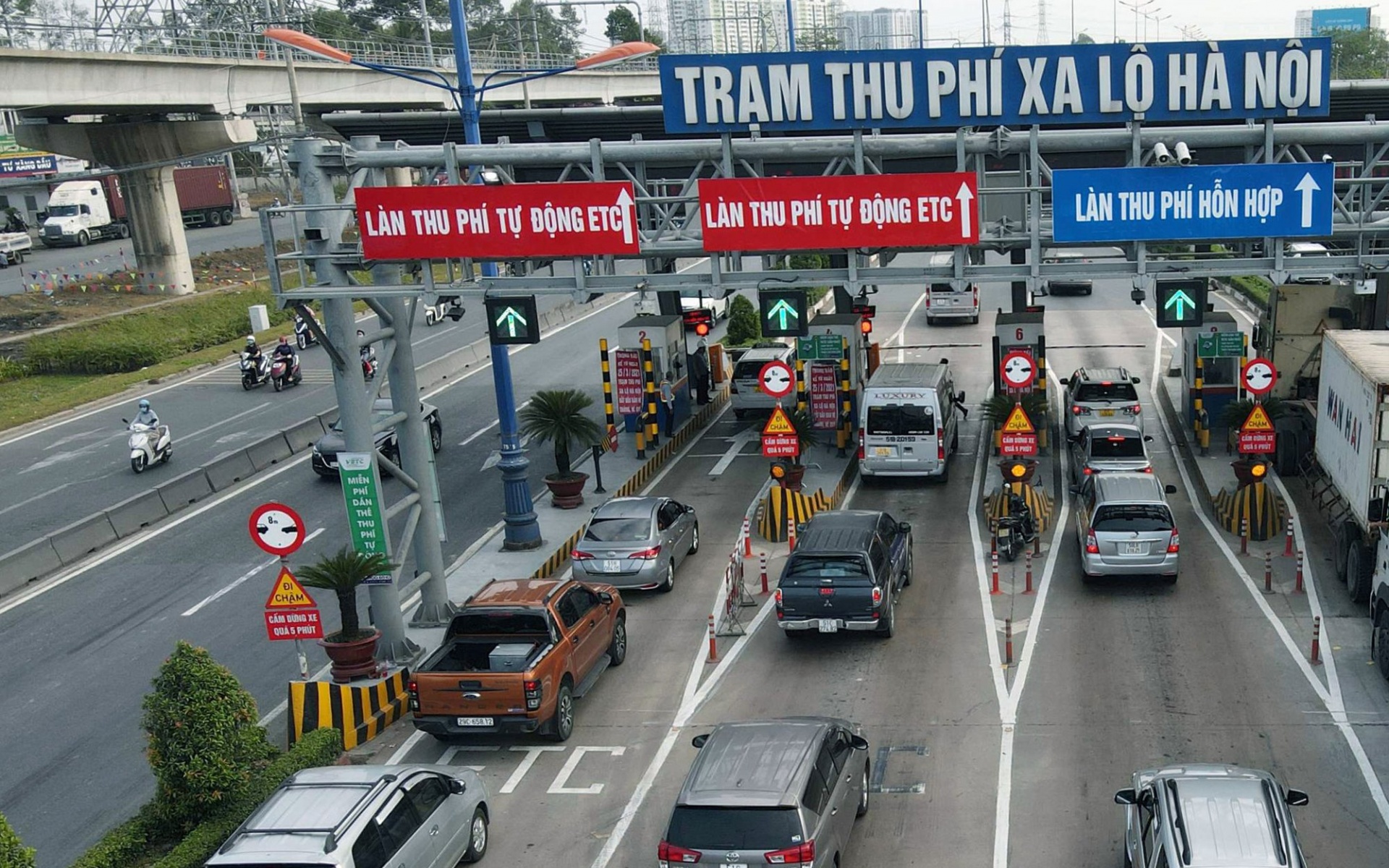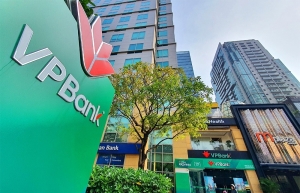ETC poised to deliver over $5 billion to Vietnam by 2030
 |
The analysis was detailed in a scientific report by Associate Professor Vu Minh Khuong, published on August 6 on the website of the Lee Kuan Yew School of Public Policy, where he serves as a lecturer. The report examines the deployment of ETC systems on highways and their potential impact on Vietnam's economy.
The global ETC market has experienced robust growth, expanding from $7 billion in 2020 to over $9.2 billion in 2023. By 2029, the market is projected to reach around $14.7 billion, assuming an annual growth rate of 8.1 per cent. This expansion is primarily driven by the implementation of ETC technology on highways, which accounts for roughly 90 per cent of the market.
Vietnam's highway network ran to 1,290km by the end of 2021, with plans to extend it to 5,000km by 2030. This development is closely linked to the transition from manual toll collection to ETC systems on national highways and motorways, a shift that began in 2019.
Last year, ETC technology was deployed across all motorways, yielding benefits worth more than $442 million. These benefits were measured across four key areas: energy savings, labour reduction, vehicle lifespan extension, and operational cost reduction. Over the past five years, the cumulative benefits are estimated to be around $1 billion.
"By 2030, ETC technology could deliver nearly $5.3 billion in total economic value to Vietnam," the report asserts. This includes fuel savings of approximately $950 million, labour cost reductions of around $2.2 billion, and over $1.6 billion in savings from extended vehicle lifespans.
Furthermore, the transition to ETC has significantly reduced travel times, eliminated traffic congestion at toll stations, and decreased fuel consumption and CO2-equivalent emissions.
Currently, two types of automatic toll collection technologies are in use: radio frequency identification (RFID) and dedicated short range communication (DSRC), depending on the infrastructure needs of each market. However, RFID, the technology adopted in Vietnam, has outpaced DSRC in both market share and growth rate.
Vietnam now has nearly 5.35 million vehicles equipped with ETC tags. From 2019 through the first quarter of this year, the market recorded approximately 991 million ETC transactions on highways. By 2030, the cumulative transaction volume could approach 4.95 billion.
Based on these findings, Khuong’s research team identified three key lessons for the transition to ETC technology in developing economies. First, a proactive approach and strong government coordination are essential for driving the shift to electronic toll collection.
In Vietnam, the government’s creation of a specialised task force to promote technology adoption in infrastructure development has been instrumental in overcoming initial challenges and accelerating the implementation of ETC systems nationwide.
Second, the involvement of private companies in deploying and managing ETC infrastructure has significantly improved the efficiency, speed, and effectiveness of the rollout. Public-private partnerships in Vietnam have spurred innovation, harnessing private sector expertise and resources to accelerate adoption and enhance system performance.
Finally, the rollout of ETC represents the beginning of a broader digital transformation in transportation and smart traffic management.
"ETC applications should be expanded to similar digital payment systems for urban tolling, parking, and cashless fuel purchases," the report concludes.
 | Dual transformation an essential choice for business Accelerating digital and green transformation is expected to help Vietnam enhance the efficiency of attracting foreign investment. |
 | Inefficiencies remain with ESG in banking Approximately 90 per cent of Vietnam’s banks have incorporated environmental, social, and governance practices to some extent, but significant challenges, such as data shortages, policy gaps, and insufficient expertise, hinder full implementation. |
What the stars mean:
★ Poor ★ ★ Promising ★★★ Good ★★★★ Very good ★★★★★ Exceptional
Related Contents
Latest News
More News
- Financial sector charts next steps as Party Congress convenes (January 21, 2026 | 09:58)
- Three key dynamics supporting Vietnam’s GDP growth in 2026 (January 20, 2026 | 16:34)
- Party Congress building momentum for a new era of national growth (January 20, 2026 | 15:00)
- 14th National Party Congress opens preparatory session in Hanoi (January 19, 2026 | 17:42)
- 14th National Party Congress expected to shape Vietnam’s path to 2045 (January 17, 2026 | 16:00)
- CVFA chief highlights role of 14th National Party Congress (January 17, 2026 | 15:54)
- Tablets to replace paper at 14th Party Congress (January 16, 2026 | 21:27)
- Hanoi to display firework to celebrate the 14th National Party Congress (January 16, 2026 | 21:21)
- Vietnam, UN strengthen cooperation in digital technology, AI (January 16, 2026 | 16:48)
- VN-Index could reach 2,040 points in 2026 (January 16, 2026 | 16:41)

 Tag:
Tag:



















 Mobile Version
Mobile Version